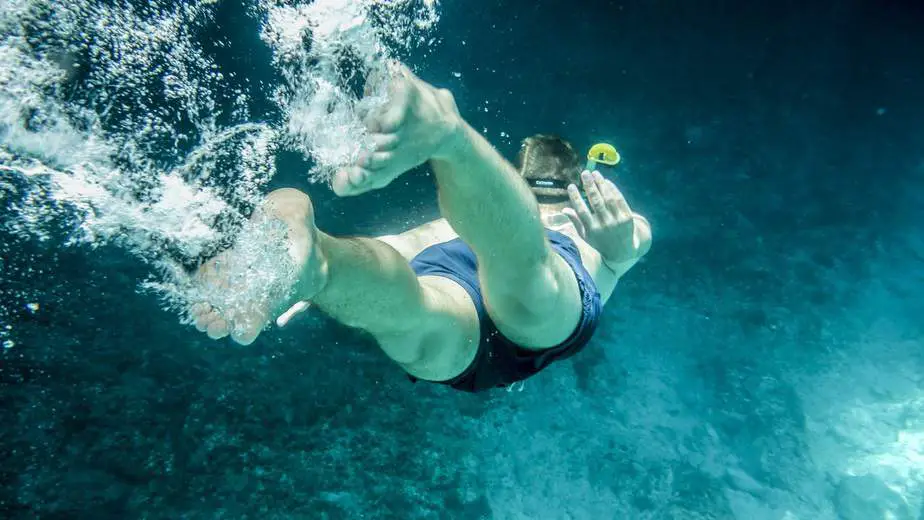Most things are better with company, but sometimes you have to do it alone. In the case of snorkeling, there are certainly some benefits of going solo. You can explore where you want at your own pace, you don’t have to wait for someone, and you can enjoy some peace and solitude. Even though snorkeling is perfectly doable alone, the ocean has some inherent risks that begs the question: is it safe to snorkel alone?
While snorkeling is generally very safe to do alone, the ocean conditions can change quickly and unexpectedly. As such, there are times when snorkeling alone can be dangerous. For this reason, we highly recommend snorkeling with at least one other person just in case the unexpected happens. There are ways to minimize the dangers of snorkeling alone, however the safest option is to have a snorkeling buddy.
In this article, we will discuss the dangers of snorkeling alone and how you can mitigate some of these risks. However, we believe that even if you follow all of these tips, you still cannot completely remove the risks, and therefore there is still a likelihood of something going wrong. Thus, snorkeling with at least one other person or in a group is the safest choice, as well as the most fun one.
Why is snorkeling alone dangerous?
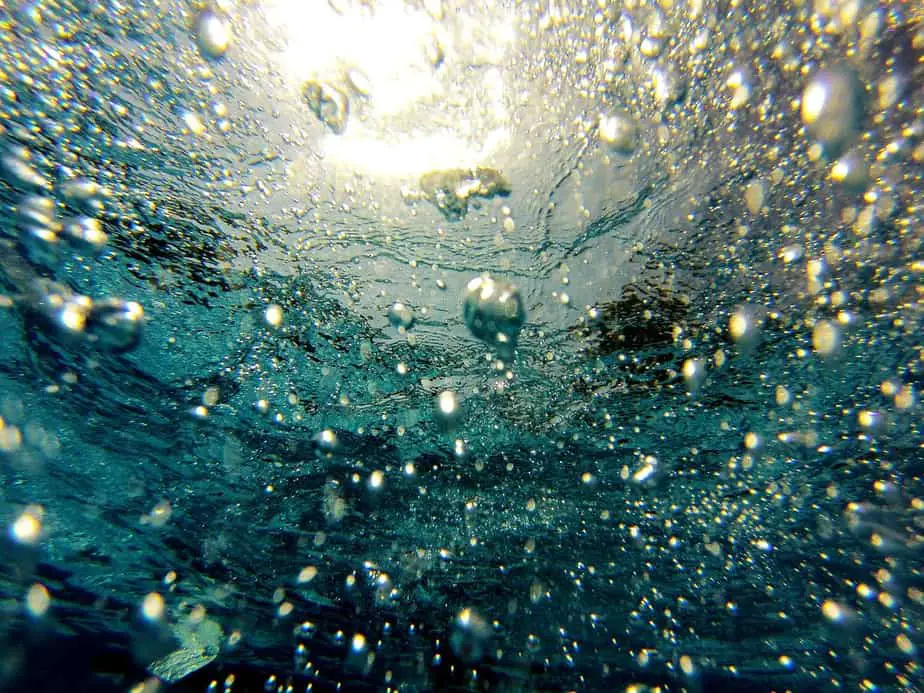
Snorkeling, like scuba diving, is a recreational hobby that allows one to explore the ocean using specialized breathing equipment. They are both considered safe hobbies, and millions of people enjoy doing them at tropical destinations all over the world.
However, one major distinction between snorkeling and scuba diving is that the barrier of entry for snorkeling is incredibly low. Snorkelers do not need to take a comprehensive course and get certified the same way that scuba divers do. Thus, it’s really easy for unqualified people who have no business being in the water to attempt snorkeling and put their lives, and others’ lives, at risk.
Even though snorkeling is generally safe, it has some real risks associated with it.
In fact, that statement is true for any water sport, be it snorkeling, scuba diving, swimming, surfing, paddleboarding, and what have you. The primary concern is that if you are snorkeling alone and you encounter a serious emergency, then there’s no one to assist you and the risk of drowning is high.
Sometimes the problems are simple, like water entering your mask or snorkel that you need to clear out. However, even a “simple” problem like this can be an issue for a non-swimmer who is struggling to stay afloat. How much more dangerous is it if the problem is severe, such as a medical emergency? Even an experienced solo snorkeler would be helpless if they had to deal with that alone.
Keep in mind that you can snorkel “alone” as long as there are still people around you. You don’t need to be part of a group or have a dedicated snorkeling buddy, but you do at least need people nearby that might be able to spot you in case something happens.
If you encounter any of the problems we are about to describe, then you’ll realize why snorkeling can sometimes be dangerous and why you should snorkel with people nearby, if not a dedicated snorkeling buddy. Otherwise, the thought of something happening to you while snorkeling solo can be scary.
Muscle cramps
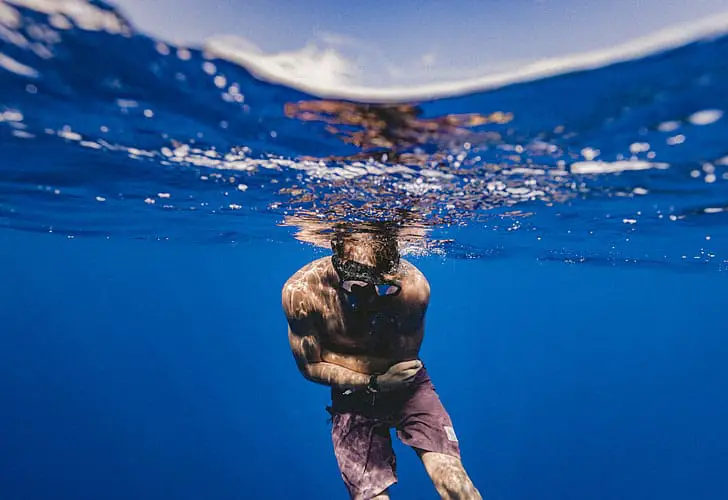
In 2019, a man drowned after getting a cramp while swimming. Now, don’t be alarmed; cramps generally aren’t a big deal. If you are wearing a flotation device, you can just temporarily stop snorkeling and try to stretch or massage the affected muscles until the cramp is gone.
The issue with muscle cramps is that when they occur to a non-swimmer, they may panic, swallow mouthfuls of water, and drown. We suspect this is what happened to that man in the article we linked above.
Cramps can last for up to 10 minutes and often go away on their own. However, in that time, it can cause an effect similar to being paralyzed, which can be incredibly dangerous while you are in deep water. You can try stretching or massaging the muscle, but this can be difficult to do while in the water.
You will be more likely to experience cramps if you are overexercising or dehydrated while snorkeling. Often, after a cramp has gone away, the affected muscles are tender and prone to cramping up again. Therefore, you should head back to safety right away.
If you’re with a buddy, managing a cramp can be a lot easier. You can have your buddy help you stretch or massage your muscle while you focus on staying afloat. At the very least, your buddy can call for help if the situation warrants it.
When snorkeling with a life vest or snorkel vest, cramps are not as much of an issue as long as you stay calm and let your flotation device keep your head above water as you try to resolve the problem. However, in the case of a severe cramp, you had best not be snorkeling alone.
Medical conditions
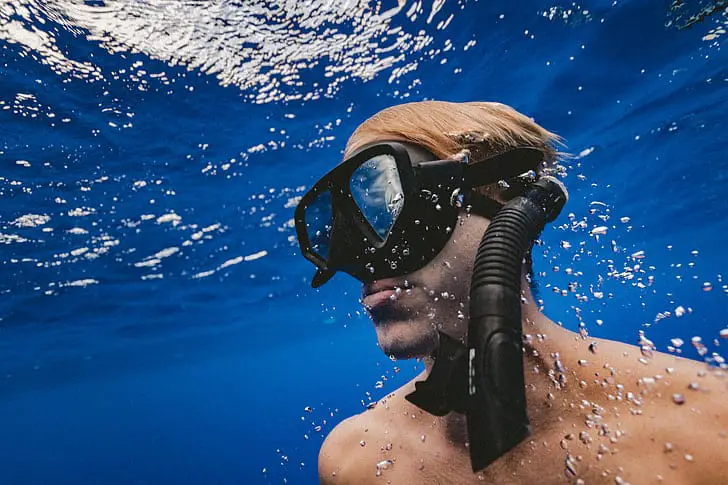
Unlike scuba diving where you will be asked to fill out a medical form and evaluated on your fitness to dive, snorkeling has no such requirement. Anybody can go snorkeling at any time, and there won’t be someone there to tell you yes or no. Therefore, it’s up to you to police yourself.
Are you aware of any medical conditions affecting you? Does your family have a long medical history? It’s possible that you might have that same medical problem in the future. If you have any suspicion that your health may be compromised, you should go see a doctor before snorkeling.
The reason why this is such a serious concern is that you will almost certainly die if a sudden medical emergency occurs while you’re in the water. If you lose consciousness, for instance, the snorkel could slip out of your mouth and you could drown. If you are in pain and no one is around to assist you, you can easily lose your life. Even if you are with a snorkeling buddy, the time it takes for them to get you from the water into a hospital may be too long.
Even if your condition is not as severe, such as a mild asthma, it can be enough to cause issues. Breathing through a snorkel is harder than usual, and if you have an asthma attack, you could struggle to breathe through the snorkel and asphyxiate.
Are you beginning to see how risky it is to snorkel alone with a medical condition? You are completely at the mercy of the ocean and your medical condition, and that’s not something you want to have in the back of your mind while you’re just trying to enjoy your vacation.
Currents and waves
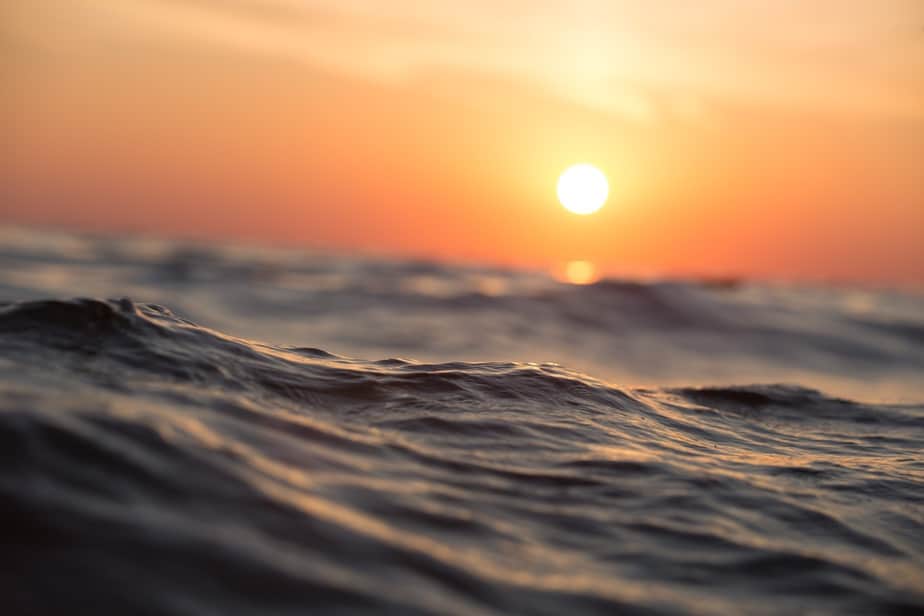
If the waves start picking up, you could easily be swept far away from the exit point. It’s also possible that you didn’t even notice a current taking you away farther than you planned. With a second pair of eyes, maybe one of you will spot what’s happening and warn the other.
Rip currents are when the water rapidly pulls a snorkeler from the shallow area far out to sea. They are a particular danger to those without a flotation device, because they may not have the stamina to make it back to shore without some aid. When you are with a friend, you may be able to stay calm and have a stronger desire to make it to shore.
There’s also the risk of a swell or surf pushing the snorkeler somewhere they don’t want to be, like onto sharp rocks or coral. If you suffer an injury, it will be difficult to make it back on your own, but an experienced buddy may be able to drag you away from these areas.
Low visibility
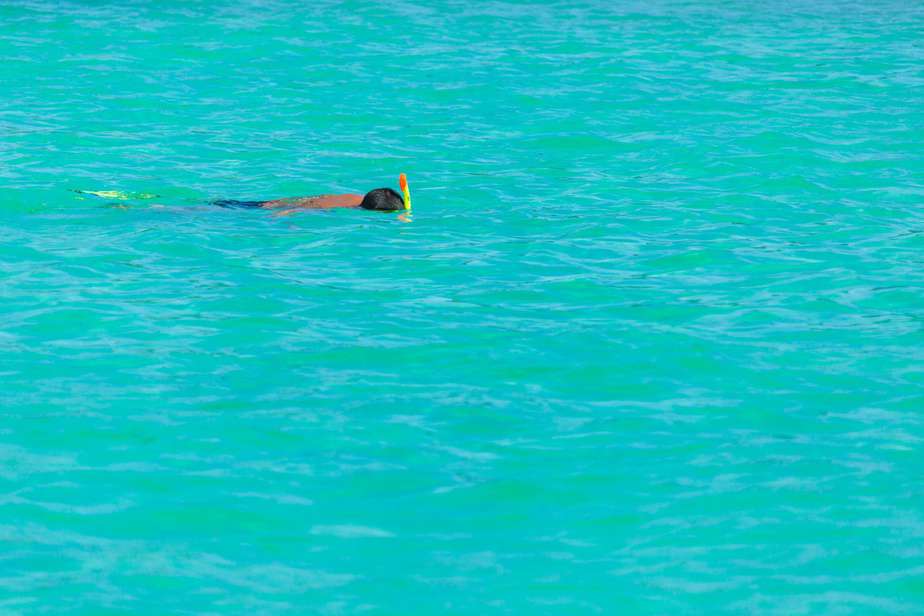
Adding on to what we said about drifting away, you might end up lost or stranded if you drift too far out. Typically, the flotation device is designed to be a bright orange or neon green to maximize visibility.
Even still, if you are a solo snorkeler, it’s a bit harder for rescuers to spot. Now, if there were two of you, then that doubles your chances of being spotted. Also, if two people go missing, then there is a chance that at least one person will be reported missing faster.
Additionally, if you happen to be snorkeling at an area with high boat traffic, even if you have a surface marker buoy (SMB) to indicate your presence, having more people will also make it easier for boaters to see and avoid.
Blackouts when duck diving
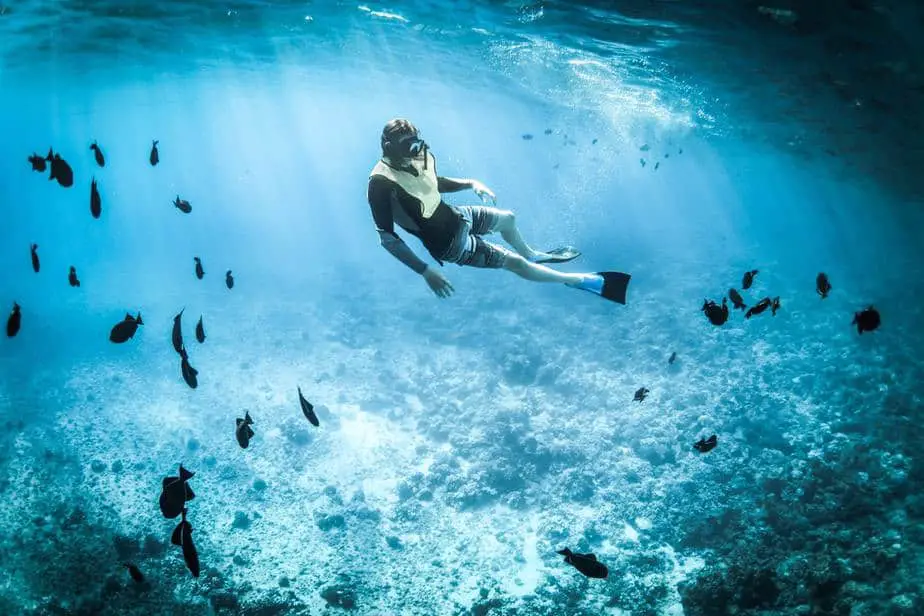
Advanced snorkelers can perform a maneuver called a duck dive or skin dive. In much the same way as a duck dives, hence the name, snorkelers can dive straight down and get an upfront view of something interesting they saw at the surface.
If you’re wearing a life jacket, you shouldn’t duck dive because you will be fighting against the jacket’s buoyancy. Snorkelers wearing a snorkel vest can deflate it so they can duck dive without any resistance besides what the water provides.
Duck diving is incredibly dangerous to do alone because of a phenomenon that can occur to skin divers and freedivers alike called shallow water blackout. This is a serious risk for people who hyperventilate before diving, which is when one intakes more oxygen into the body than it normally needs by performing fast, rapid shallow breaths for a period of time.
Hyperventilation can decrease the amount of carbon dioxide in the blood which would normally warn the brain that it needs fresh air. Thus, you will feel fine even as you’re asphyxiating. Hyperventilating is a dangerous technique that honestly should never be performed due to the risk of shallow water blackout.
Since the skin diver has deflated their snorkel vest so that they can descend, they aren’t going to surface by themselves; that’s why they need a buddy to watch over them.
When you’re duck diving with at least one other person, you should follow the rule that each person duck dives one at a time. That way, if someone fails to surface, the others can spring into action and attempt to rescue the diver or call for help.
Marine life encounters
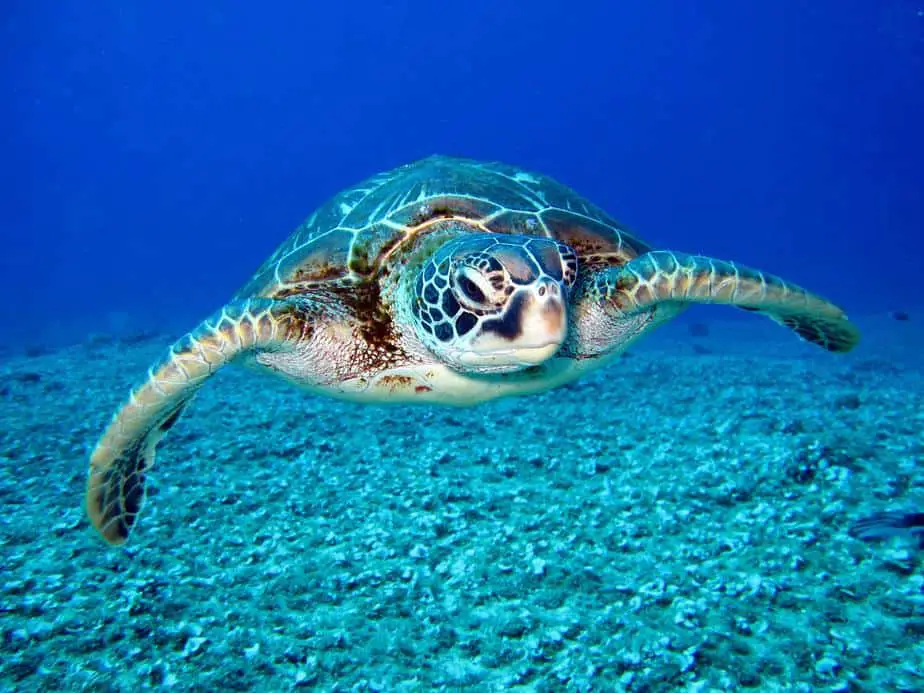
Whether you’re snorkeling alone or with a group, you can still get hurt by a coral sting, cut, or any other kind of injury inflicted by marine life. The benefit is, being with a group may discourage some of the larger marine life from approaching, and if you somehow get injured by the marine life, then you have a bunch of people around you to assist you.
If you get injured and you’re alone, then you have to somehow make your way back to safety under duress. You could experience discomfort, exhaustion, shock, loss of blood, or various other problems depending on how severe your injury is.
Even though sharks typically pose no threat to people, a solo snorkeler may be an object of interest for a shark. Now, even if the shark wasn’t planning on taking a bite out of you, if you panic and flail around, it might excite it enough to attack.
Despite what the statistics say about the infrequency of shark attacks, obviously you should not be in the water in shark-infested waters at all. You don’t want to take the chance, whether you’re going solo or not, to swim in an area where there are sharks nearby.
It’s not as fun to snorkel alone
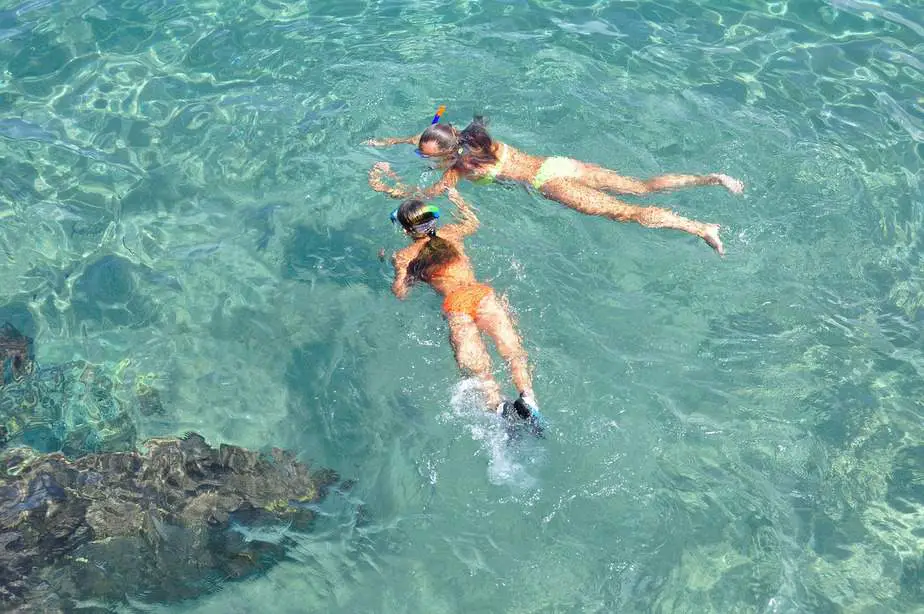
This may be a bit of a controversial opinion, but I think for the majority of snorkelers, snorkeling alone is not only less safe, but also less fun.
When you’re snorkeling with at least one other person, particularly if that person is a close friend or family member, you are creating a memorable experience together. Where you might be timid before, you are emboldened when you are with someone else. Even after you finish snorkeling, you can talk about what you just went through and plan for the next one.
Plus, there’s also the matter of convenience which directly affects fun. Your buddy can assist you if you are having mask or snorkel problems. When you’re getting in and out of the water, they can be there to lend a hand, or vice versa. When you’re alone, you need to do all of this by yourself which is inconvenient, and more dangerous.
It’s also great if the person you’re snorkeling with can show you a good place to snorkel that you haven’t been to and vice versa. Sharing your knowledge of this sport and showing them stuff they haven’t seen is a great joy. Perhaps they can do the same for you.
Plus, two pairs of eyes will not only spot danger more easily, but they can also spot more interesting things to see.
Are there times when it’s safe to snorkel alone?
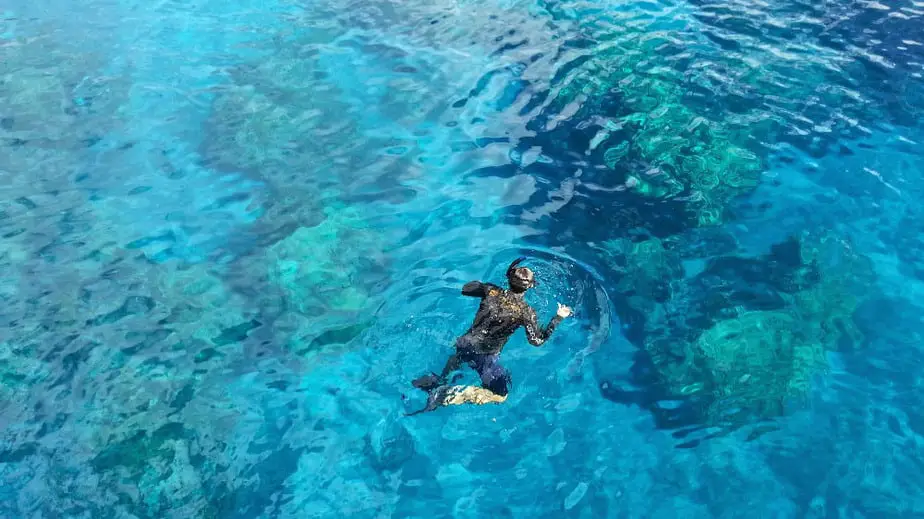
Yes, you can snorkel “alone” under specific circumstances and still be safe. We’ve alluded to this already, but as long as you’re in the water with other people, you’re not really alone are you? Plus, if there’s a lifeguard on duty or someone close by that can provide assistance at a moment’s notice, then you are pretty well protected.
You can enjoy the benefits described above by snorkeling at popular destinations or at a resort with a house snorkeling reef. With that said, it’s still not nearly as safe as snorkeling with a designated buddy whose eyes are focused on you. The other snorkelers may take a while to notice you are having problems, and so there will be a delay before you get any help if you are snorkeling alone.
Now you might be wondering, is it possible to safely snorkel if you are truly alone? Yes, but you have to remember that the ocean has inherent risks even if you are being as cautious as you can. Here are some criteria we recommend following when selecting a safe spot to snorkel in:
- It must be a sheltered area, such as a bay or lagoon with little to no currents or tides.
- It must be in shallow water.
- It must be a location with little to no boat traffic.
- Even if there are no snorkelers with you, it should have people around the shore that you can call for help.
- It must be a place you can stay close to the shore and be able to exit anytime.
How to determine if it’s safe to snorkel alone
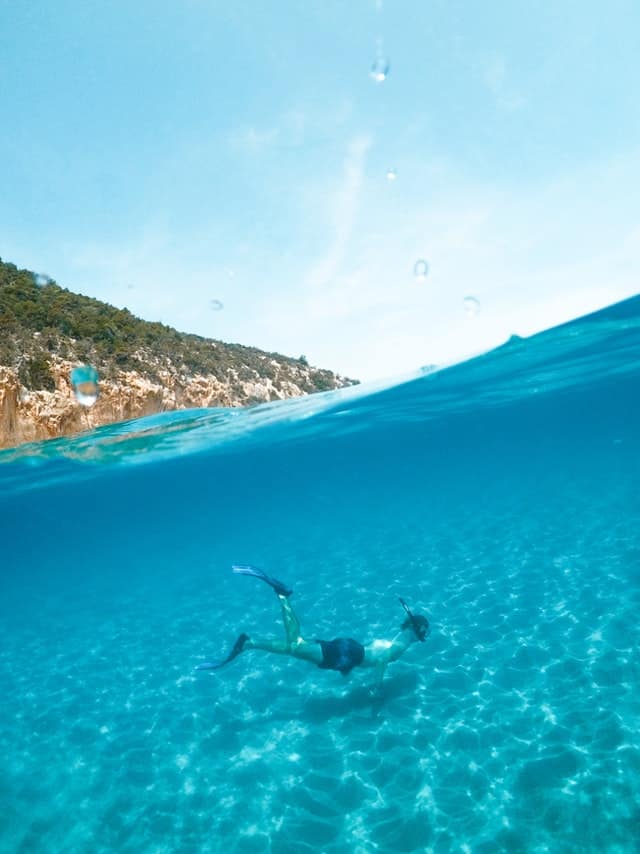
Before heading into the water, you should run some scenarios in your head. What do you do if you have a problem? What kinds of problems might you encounter? How could you solve it by yourself, if possible, or how might you get some help? This exercise is known as negative visualization, where you imagine a bad outcome so that you are better prepared for it if it happens for real.
Next, check if the water is calm, or if there are strong tides or currents that could cause you trouble when snorkeling alone.
Are you able to stay close to shore and get out whenever you want? If you are further out, are you still able to stay close to the exit point somehow?
Take a look at the local weather reports to get an idea of the changing weather conditions. You can also ask the locals for their opinion on whether the area is a good place to snorkel.
Lastly, we recommend first snorkeling in that area with a buddy so that you are familiar with what its conditions are like. Then in a subsequent snorkeling session, you will be better prepared to handle it alone.
Tips to keep in mind when snorkeling alone
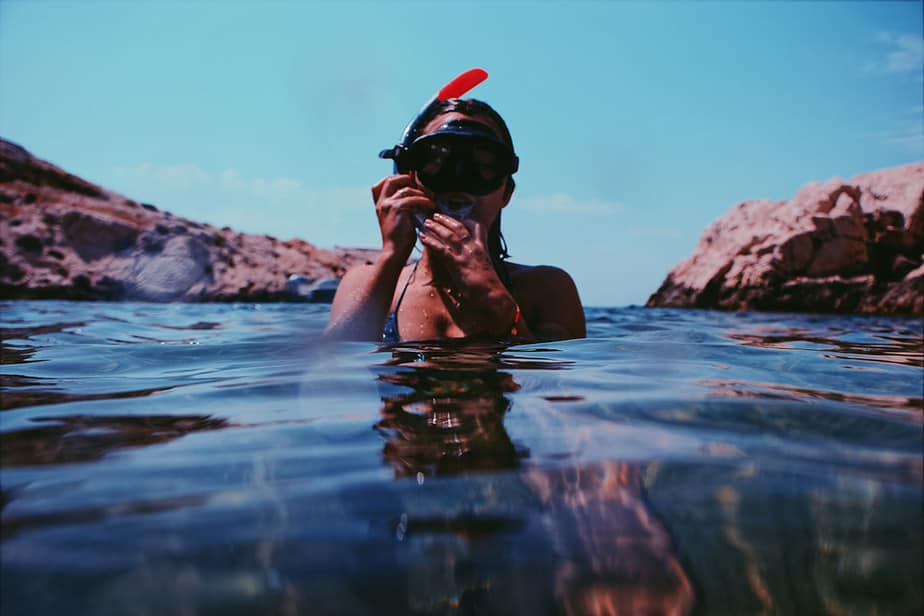
Lastly, here are some practical tips that can help keep you safe when you’re snorkeling alone.
- Make sure you get a good night’s rest the day before your snorkeling session. Do not go out if you’re exhausted or feeling unwell.
- Check the local tides and stay away from areas where the changing tide may cause large currents or trap you.
- Look for local information on rip-tides and stay away from these areas.
- Take a look at the local weather reports so you don’t get caught up in changing conditions.
- Let a friend or family member know you’re snorkeling alone and when you’ll come back.
- Before snorkeling, drink plenty of fluids and stretch your muscles to prevent cramps.
- Check and double-check the condition of your gear before you head into the water.
- Purchase and use gear that is bright and easy to spot. Most flotation devices come in bright orange or neon green for a reason.
- If you plan on snorkeling long, consider wearing a wetsuit for added buoyancy, warmth, and even a little bit of protection.
- Wear a personal flotation device. We recommend a life jacket for beginners, and a snorkel vest for more advanced snorkelers.
- Tow a surface marker buoy (SMB).
- Bring a whistle so you can call for help if needed.
- Consider bringing your phone in a waterproof phone case. You can use it to take photos or call for help if needed.
- We only recommend snorkeling alone in areas that you are already familiar with. If it’s your first time in an area, we recommend going with a buddy.
- If possible, snorkel in sheltered areas like bays or lagoons where there are no currents or waves to worry about.
- When snorkeling in an area with boat traffic, stick close to your SMB, wear bright colors, and pay attention to any boats nearby. You should be paying attention to your surroundings in general.
- Stay well within your limits when snorkeling alone. Be more conservative. Don’t take any risks and return to shore if you sense any danger.
- Never hyperventilate before duck diving, and in general, don’t duck dive alone due to the risk of shallow water blackout.
Parting words
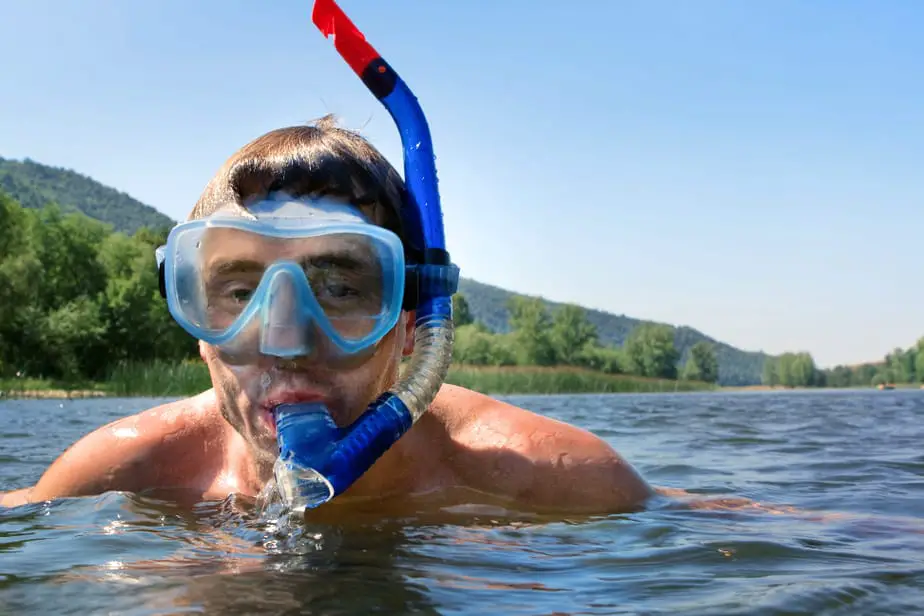
As you can see, snorkeling is significantly safer when you are with at least one other person.
Yes, you can snorkel alone, perhaps even safely. However, that requires significant caution, planning, safety equipment, and experience. Your choice of snorkeling area makes a big difference as well.
Even with all of these considerations, being in water is inherently risky. If you encounter a problem alone, it’ll be up to you to handle it alone. If you’re inexperienced, you are more susceptible to panicking which only worsens the problem.
People who have pre-existing medical conditions should never snorkel alone. In fact, they might not be able to snorkel at all, depending on what the doctor says. If you are a non-swimmer, don’t even think about snorkeling alone either.
There are benefits to snorkeling with someone else beyond added safety. Being with a friend or family member will make the experience more fun and memorable. It’s also more convenient because you have an extra set of hands and pair of eyes to assist you and vice versa.
Ultimately, if you want to snorkel alone, it’s best to be extra conservative and stay within your limits. Don’t get a false sense of confidence just because you are wearing a life jacket. The ocean can be an unforgiving place, so don’t underestimate it when snorkeling alone.

